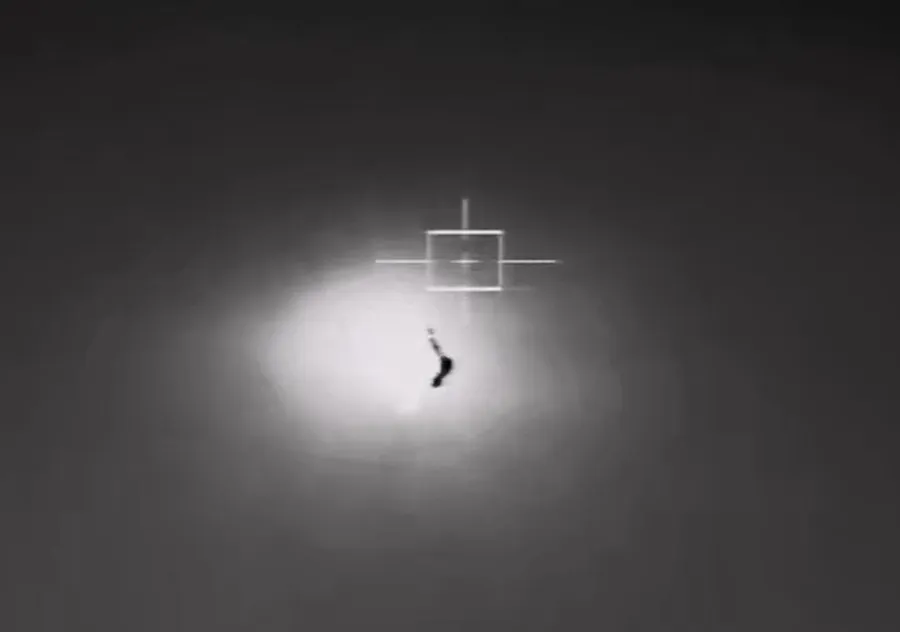International
North Korea launches a dozen ballistic missiles in a rebound in tension with the South

North Korea launched a dozen short-range ballistic missiles into the Sea of Japan on Thursday after sending hundreds of debris-filled balloons to the south and erring in its attempt to put a spy satellite into orbit, in a week marked by the upsurge in tensions in the peninsula.
The South Korean Joint Chiefs of Staff (JCS) reported in a statement that the missiles were launched from the Sunan area, in Pyongyang, at 6.14 local time (21.14 GMT on Wednesday), and that they flew about 350 kilometers before falling into the Sea of Japan.
Due to the flight distance, it is believed that the approximately 10 projectiles could have been fired from multiple shuttles, which means an unusually high number of missiles launched in the same round by the regime.
The South Korean Army condemned in a statement the latest “provocation” of the North and noted that it has “strengthened vigilance against additional launches, while information is being shared closely with the authorities of the United States and Japan.”
The Japanese Prime Minister, Fumio Kishida, said that the projectiles fell outside the exclusive Japanese economic zone without causing any damage to vessels or aircraft, and said that the launches violate the resolutions of the United Nations Security Council.
In the same vein, nuclear envoys from South Korea, the United States and Japan discussed their coordinated response to the weapons test, through a phone call.
The Director General for South Korean Nuclear Affairs, Lee Jun-il, addressed both missile launches and the other actions of the regime in previous days with the US Deputy Secretary of State for East Asia and the Pacific, Jun Pak, and with her Japanese counterpart, Yukiya Hamamoto.
“The three parties condemned missile launches as a violation of the resolutions of the United Nations Security Council and stressed that they pose a serious threat to peace and security,” the South Korean Foreign Ministry said in a statement.
Today’s tests, the first of ballistic missiles since Pyongyang tested tactical projectiles equipped according to the regime with a new “autonomous” navigation system on the 17th, took place the day after the North sent more than 200 balloons filled with waste to the neighboring country.
This is the largest number of balloons of this type – similar games were sent through the North across the border in 2016 and 2018 – detected to date, and arrived after Pyongyang threatened to respond to the sending of anti-regime propaganda by activists from the South.
In addition, the South Korean Army reported that the North had tried to interfere with the GPS signals of the South on the maritime border between the two countries, in the second action of this type this week and which caused a malfunction in the navigation systems of fishing and passenger boats in the area.
Likewise, last Monday, North Korea notified the Japanese coast guard of its intention to launch a new spy satellite and offered a launch window between that day and June 3.
Pyongyang launched his space vehicle that same Monday from its space base in Sohae (northwest of the country) and the South Korean Army detected, just two minutes after the launch, the projectile “as a large group of fragments” on the North Korean coast.
North Korea, which attributed the failed launch to a problem in the rocket engine, thus added a new failure for its space program, after two launches were failed in the spring and summer of 2023.
International
DHS Secretary Kristi Noem’s Purse Stolen in D.C. Restaurant Heist

The purse of Kristi Noem, Secretary of the Department of Homeland Security, was stolen on Sunday night at a restaurant in Washington, D.C., Fox News Digital confirmed through several agency sources.
The handbag, taken by a white male wearing a mask, reportedly contained $3,000 in cash along with personal documents, including her passport, keys, driver’s license, and DHS badge, according to an agency spokesperson.
“Her entire family was in town, including her children and grandchildren. She was celebrating her retirement by treating them to dinner, activities, and Easter gifts,” the spokesperson added.
Crime continues to be a significant issue in the U.S. capital, particularly theft. However, violent crime reached its lowest level in 30 years last year, according to the Office of the Attorney General at the time.
International
Pope Francis: The Quiet Architect Behind the U.S.-Cuba Thaw

When then-U.S. President Barack Obama and Cuban President Raúl Castro announced the reestablishment of diplomatic relations in December 2014—after decades of hostility—there was a third figure present in both speeches: Pope Francis.
This thaw in U.S.-Cuba relations—later reversed by Donald Trump—was the result of behind-the-scenes negotiations personally encouraged by Pope Francis, who passed away on Monday at the age of 88, just over a year after becoming head of the Catholic Church.
Upon learning the news of the breakthrough, the pontiff humbly stated, “This was made possible thanks to the ambassadors and to diplomacy,” which he called “a noble, very noble job.”
In 2015, months after the announcement, Raúl Castro visited the Vatican and met with the pope. Over time, Castro developed a fondness for Francis that he never had for his predecessors, Benedict XVI and John Paul II. “If the Pope continues talking like this, sooner or later I’ll start praying again and return to the Catholic Church—and I’m not joking,” said the younger Castro, who, like his brother Fidel (1926–2016), had been educated by Jesuits—the same order to which Pope Francis belonged.
Pope Francis visited Cuba later that year. Just days before his arrival, the Cuban government announced the pardon of 3,522 common prisoners as an act of clemency.
While in Havana, the pope met with Fidel Castro, who gave him a first edition of the book Fidel and Religion by Brazilian friar and liberation theologian Frei Betto.
Criticism from the Opposition
Francis’s diplomatic approach also drew criticism from parts of the Cuban opposition. In a 2022 interview with Univision, the pope revealed he had “a human relationship” with Raúl Castro.
International
Dominican Republic Declares Three Days of Mourning for Pope Francis

Dominican Republic President Luis Abinader has declared three days of national mourning starting Tuesday following the death of Pope Francis, who passed away on Monday at the age of 88 in his residence at the Casa Santa Marta.
In an official decree, Abinader highlighted the pope’s legacy “as a global leader who promoted significant reforms within the Catholic Church and was known for his humility, openness to dialogue, and commitment to peace among nations.”
During the mourning period, the national flag will be flown at half-staff at military facilities and public buildings.
According to a statement from the Office of the Presidency, although Pope Francis never visited the Dominican Republic during his papacy, he maintained a close relationship with the country. He expressed solidarity and empathy during difficult times, including offering prayers for the victims of the recent tragedy at a Santo Domingo nightclub on April 8, which claimed 232 lives and left more than 180 injured.
-

 Central America4 days ago
Central America4 days agoNicaraguan Exiles to Mark 7th Anniversary of 2018 Protests with Global Commemorations
-

 International4 days ago
International4 days agoDominican ‘False Hero’ Arrested for Faking Role in Nightclub Collapse That Killed 231
-

 International3 days ago
International3 days agoACLU seeks emergency court order to stop venezuelan deportations under Wartime Law
-

 Central America3 days ago
Central America3 days agoUN complaint filed against Costa Rica over detention of migrant children
-

 International2 days ago
International2 days agoThousands rally nationwide against Trump’s threat to U.S. democracy
-

 Central America1 day ago
Central America1 day agoSenator Van Hollen Meets with Deported MS-13 Member in El Salvador; Trump and Bukele React
-

 International1 day ago
International1 day agoPope Francis Appears for Easter Blessing, Calls for Peace and Religious Freedom
-

 Central America6 hours ago
Central America6 hours agoCardinal Rodríguez to Attend Funeral of Pope Francis: “He Was Very Dear to Me”
-

 International6 hours ago
International6 hours agoDominican Republic Declares Three Days of Mourning for Pope Francis
-

 Central America6 hours ago
Central America6 hours agoNicaragua’s Ortega and Murillo Mourn Pope Francis, Acknowledge ‘Difficult’ Relationship
-

 International5 hours ago
International5 hours agoDHS Secretary Kristi Noem’s Purse Stolen in D.C. Restaurant Heist
-

 International6 hours ago
International6 hours agoPope Francis: The Quiet Architect Behind the U.S.-Cuba Thaw















